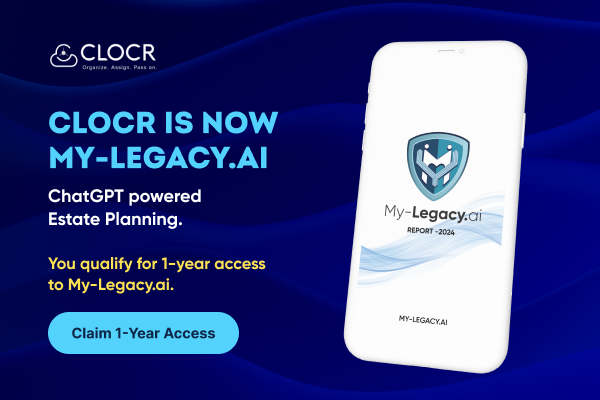Estate Planning is the process of creating a plan for your assets after you pass away to continue protecting and supporting your loved ones. However, this cannot be legally possible unless you have some estate planning documents.
The Estate Planning documents you need largely depend on your unique estate planning goals. This could be influenced by your age, your income, your marital status, and the number of dependents you have.
Regardless of their unique situations, however, every single person needs these estate planning documents:
Last Will and Testament
The last will and testament is a legal document that forms the foundation of your estate plan. It enables you to state your last wishes for your loved ones and your assets. This estate planning document lets you:
- Appoint an Executor to manage your estate
- Leave instructions on what should happen to your assets
- State who should get what assets
- Appoint guardians for your minor children and pets
In the absence of a last will and testament, however, the probate court takes these decisions for you.
Durable Power-of-Attorney
A durable power-of-attorney states that the authority of your agent continues even if you were incapacitated, and ends after your death. Most states consider this as a default power of attorney unless specified. You can revoke their authority any time you choose.
Healthcare Power-of-Attorney
This is a legal document that lets you appoint someone else to make healthcare decisions for you when you cannot. This person is called your healthcare proxy and can take decisions on:
- The medical treatment you receive
- The facilities you receive medical care
- The doctors who oversee your care
You can always limit the power of your healthcare proxy by explicitly mentioning it in your Healthcare Power-of-Attorney document. You can even revoke them at any point simply by drawing up new papers.
Financial Power-of-Attorney
Also known as general power-of-attorney, this document allows you to legally appoint someone to manage your finances and make financial decisions on your behalf when you’re unable to. This could include managing your finances and property, and conducting all financial transactions.
Similar to a healthcare power-of-attorney, you can limit or revoke the authority of your agent at any time.
Advance Healthcare Directive or Living Will
An advance directive enables you to state your wishes for your end-of-life care. This legal document allows you to tell your family, friends, and doctors what your wishes are even if you’re not in a condition to convey it, consequently reducing disagreements and decision-making burdens. You can use an advance healthcare directive to leave instructions about:
- The use of dialysis
- The use of breathing machines and feeding tubes
- Organ donation
- Resuscitation
You can create your advance directive document by filling in your state-specific forms and informing your loved ones about it. This document can be enacted only after two physicians certify that you are terminally or seriously ill, in a coma, or permanently unconscious and unable to make decisions by yourself.
It is important to keep this document updated to ensure it reflects your changing wishes on your end-of-life care.
Living Trust
A living trust is a legal document that lets you transfer chosen assets into an entity called a trust and appoint a trustee to manage those assets for the benefit of its beneficiaries. Creating a living trust allows for easy transfer of assets to your beneficiaries without the long and expensive probate process.
Beneficiary Designations
Beneficiary designations are people you appoint to inherit the proceedings from your Individual Retirement Accounts (IRA), insurance policies, etc. Adding names to your payable-on-death accounts makes the transfer of these assets much easier and can even avoid probate.
Letter of Intent
Although informal, a letter of intent can help your loved ones, executor, beneficiaries, and the probate judge understand any important personal and financial matters. You can use a letter of intent to:
- Leave funeral and burial instructions
- Detail instructions on what to do with the assets
- Tell family what to do with personal items of sentimental value
- Explain your Will
Transfer-on-Death Deed
A transfer-on-death deed is a good way for your beneficiary to receive your property after your death. With a TOD deed, your property would avoid probate and get transferred to your beneficiary easily. You can do this with vehicles and real estate, although it may vary from state to state.
Will for Digital Assets
Finally, add a will for digital assets to your estate planning documents. This makes sure that your digital assets are not forgotten and they are protected too. Using a will for your digital assets, you can:
- Leave instructions on what happens to your online accounts
- Who gets monetary proceedings from your online accounts, if applicable
- Any other special requests on downloading data, etc.
Now that you know what estate planning documents you need, begin your estate plan as early as possible – preferably right now!
Get started with your Digital Estate Plan and protect your digital assets for yourself and your loved ones today!

